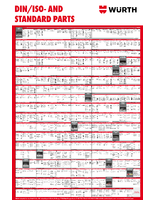Meshing API Released for Public Use
Provides Seamless Exchange of Meshing Software Modules
8 December 2005 - Pointwise announces the public release of UGC API V2, software and documentation for an application programming interface (API) for unstructured meshing software. Development of API V2 was recently completed for the U.S. Air Force Research Laboratory (AFRL) by a Pointwise-led team including Boeing, Lockheed Martin, and Basis Software.
The purpose of the API is relatively simple. By specifying how meshing technologies are to be implemented in software, meshing algorithms may easily be integrated into existing meshing applications if both conform to the API specification. For example, AFRL uses several meshing applications in their day-to-day computational research while also funding development of new meshing technology. Currently, it is difficult to integrate new technology into an application because the two are written by different authors: different function names, argument lists, return values, data structures, etc. Rather than reengineer either the application or the technology, a common API could be used by both the application developers and technology researchers resulting in seamless integration. Conceivably, the API could allow new meshing technology to be integrated in a plug-and-play fashion.
Boeing has already incorporated the UGC API into their in-house meshing framework. Todd Michal, Associate Technical Fellow, describes the results. "The UGC API has been selected as a standard software programming interface within Boeing. Preliminary implementations of the API have been incorporated into a handful of Boeing's engineering design applications. Incorporation of the UGC API will enable seamless sharing of technology and software tools between software development efforts within Boeing and with external vendors. Use of a standard interface will also improve our ability to integrate meshing technologies into software that traditionally has not had a direct connection to the meshing tools. Adoption of the UGC API by the aerospace industry will allow new meshing technologies to be rapidly transitioned into our analysis tools and provide Boeing's engineers with the ability to select the best available software for the job at hand".
The API supports mesh generation for 1-D, 2-D, and 3-D linear and quadratic elements that are triangular, quadrilateral, tetrahedral, pyramidal, prismatic, and hexahedral. The API specifies C as the standard programming language. Other programming languages such as Fortran77 and Fortran90 are supported via wrappers (example wrappers are provided with the API). The API consists of a collection of pre-defined interface definitions and specifications on how software tools are to interact using the API. The API is designed to permit multiple meshing libraries to be linked into a single application.
Recently, the UGC API was recognized by the 14th International Meshing Roundtable with their Meshing Maestro Award.
About the Unstructured Grid Consortium: The API's namesake, the Unstructured Grid Consortium (UGC), was formed in 1999 by AFRL and Boeing as a forum for facilitating the exchange of unstructured grid technology and has grown to include eleven member organizations from government, industry, and academia. In 2004 the UGC became a working group of the Meshing, Visualization, and Computational Environments Technical Committee of the American Institute of Aeronautics and Astronautics. For more information about the UGC and download instructions for the API, visit http://www.aiaa.org/tc/mvce/ugc.
About Pointwise: Pointwise is solving the top problem facing engineering analysts today: mesh generation for computational fluid dynamics (CFD). Gridgen runs on Windows, Linux, Mac and Unix; generates structured, unstructured, and hybrid grids; and interfaces with CFD solvers such as ANSYS CFX, Fluent, and STAR-CD as well as many neutral formats like CGNS (www.cgns.org). Large manufacturing firms and research organizations worldwide rely on Gridgen as their complete pre-processing toolkit. Further information on Gridgen can be obtained from Pointwise's web site, www.pointwise.com.




